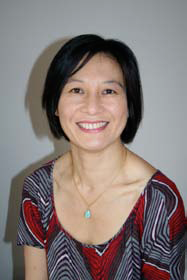You are here
Home › TLRI research › Research completed › School sector › Understanding the pedagogy of school-based marae: A culturally responsive learning context in secondary schoolsUnderstanding the pedagogy of school-based marae: A culturally responsive learning context in secondary schools
Project Description
Marae-ā-kura (school-based marae) have been part of the secondary school landscape since 1978. Today there are approximately 99 marae in state secondary schools in New Zealand (Ministry of Education, 2008).1 Although marae-ā-kura are officially endorsed by the Ministry of Education (2000) to better engage with Māori parents, whānau and communities, there is little research on the way marae-ā-kura operate, their pedagogical practices and their effect on Māori student outcomes.
This two-year research project investigated the role of marae-ā-kura as culturally determined spaces in mainstream secondary schools. It involved the participation of students, teachers, principals, whānau and community representatives of three urban marae-ā-kura within the Auckland region. The study examined the pedagogy of marae-ā-kura and their effect on the educational achievement, including the cultural well-being, of Māori learners and their whānau.
|
With a marae in the school, we’re not afraid to be Māori. (Year 11 student) Ko te kaupapa matua mōku ake kia noho Māori tātou ia rā, ia rā i roto i tō tātou kura, mā te marae tērā. Mā |

Project Contact
Dr Jenny Bol Jun Lee
Director, Rautaki Ltd
PO Box 14779, Point Chevalier.
1/338 Point Chevalier Rd,
Point Chevalier, Auckland 2011.
Email: jenny@rautaki.co.nz
Project Outputs
2011
Presentations, conferences and workshops
Lee, J., Pihama, L., Hohepa, M & L. Smith. ‘Challenging notions of responsiveness, leadership and effectiveness in education’. Symposium presented at the NZARE Conference, Bay of Plenty Polytechnic, Tauranga.
2010
Publications
Lee, J. (2016). Marae-ā-kura: A culturally specific decolonising strategy. In J. Hutchings & J. Lee (Eds.), Decolonisation in Aotearoa: Education, research and practice, Wellington: NZCER Press.
Lee, J. BJ. (2013) Marae a-kura: Tracing the birth of marae in schools. Set: Research Information for Teachers, 2, 3-11. Retrieved from http://www.nzcer.org.nz/nzcerpress/set/articles/marae- kura-tracing-birth-marae-schools
Lee, Jenny & C. Selwyn. (2010) Oho ake: Rehu Marae, Nga Puna o Waiōrea. Auckland: Rautaki Ltd.
Presentations, conferences and workshops
Lee, J. Invited Keynote speaker ‘Marae-a-kura’ Maori Teachers’ Conference, PPTA, Rotorua. 3 July 2013
Lee, J. More than role models: Māori teachers as cultural workers. The 6th International Conference on Indigenous Education: Pacific Rim, Cairns, 18 December 2010.
Presentation and Book Launch at Rehu Marae’s 21 year celebration, Nga Puna o Waiorea, Western Springs College, December 2010.
Lee, J., Smith, L. & C. Selwyn. ‘School Marae: Charting Māori educational aspirations in secondary schools’. Paper presented at the NZARE Conference, University of Auckland. 9 December, 2010.
Lee, J., Pihama, P., & L. Smith. ‘Inside the school stands a marae: Creating cultural space in the mainstream’. Paper presented at the Ngā Pae o te Maramatanga, 4th International Indigenous Traditional Knowledge Conference, The University of Auckland. 6 June, 2010.
TLRI research
Recently published reports
Pepe meamea in the spirit of the collective: Embedding Samoan indigenous philosophy in ECE for Samoan children under two
Jacoba MatapoOn2Science - Multiple affordances for learning through participation in online citizen science
Dr Cathal Doyle and Dr Cathy BunttingLearning From Each Other: Enhancing Pacific Education through People, Concept and Culture-focused Inquiry
Dr Cherie Chu-Fuluifaga and Dr Martyn ReynoldsMore projects like this
- Teaching and learning in the supervision of Maori doctoral students
- Effective teaching in different cultural contexts: A comparative analysis of language, culture, and pedagogy
- Supporting learning in the early years for children who learn in more than one language: Developing deeper understandings for practice

